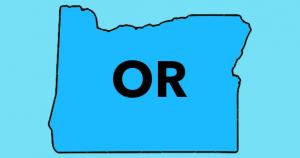w/CMS approval, Oregon becomes 3rd state to officially launch BHP program starting July 1st

OK, I'm back from the Doctors for America conference! I'll be posting a write-up about that soon, but in the meantime I have a backlog of healthcare policy developments to catch up on...
Oregon becomes 3rd in nation to seek federal approval for a basic health program
A group of volunteer advisors to the Oregon Health Authority has voted Tuesday to make the state the third in the nation to seek federal approval for a basic health program.
...The Oregon Health Policy Board voted unanimously to approve Oregon’s blueprint application. It was the last step in a lengthy policy-making process needed for state approval of the plan after a task force last year recommended moving forward with it.
It’s the latest in a series of incremental steps policymakers have taken that move the state in the direction of universal health coverage, including allowing all children in Oregon who qualify for Medicaid to stay enrolled without annual re-evaluations until their 6th birthday, allowing adults to stay enrolled for two years at a time, and extending coverage to undocumented youths and adults.
The basic health program, set to launch July 2024, will cover people who earn 138% to 200% of the federal poverty level.
In Oregon, about 100,000 people will qualify, the state health authority estimates.
There's also some interesting details on the funding of Oregon's BHP program once it ramps up:
Oregon Health Authority officials believe that they will be able to fund the BHP almost exclusively with federal dollars.
While Oregon provides 40% of the funding for the state’s Medicaid program and the federal government kicks in 60%, the Health Authority claims the BHP will be more than 99% federally funded.
Federal funding for BHP programs is 95% of the amount which the same enrollees would have received in federal ACA subsidies had they enrolled in those instead. The state has to come up with the balance, but depending on how the BHP program is structured, it doesn't necessarily have to pay anything close to 40% of the total cost.
The state’s 2023-25 budget anticipates up to $533.5 million in federal funding from those diverted tax credits for the BHP trust fund.
Oregon will need to contribute $1 million in ongoing funding for two program costs that aren’t allowable under federal rules: $800,000 for administrative costs at OHA, and $200,000 to provide abortion care that is a required benefit under state law but barred from federal funding by the Hyde Amendment.
State officials initially feared the Centers for Medicare and Medicaid Services would not allow federal BHP dollars to cover behavioral health treatment, which Oregon bills for separately from other Medicaid services. That would have added considerably to the BHP’s state funding requirement. But the federal government recently affirmed Oregon can use federal dollars for behavioral health treatment that coordinated care organizations bill for separately.
Of course, the enhanced ACA subsidies provided by the Inflation Reduction Act are currently scheduled to sunset at the end of 2025; if they're allowed to expire, that will also mean considerably less federal funding available for the BHP program as well.
That was the last time I saw any updates on the status of Oregon's BHP program until last week, when Sigi Ris of Inside Health Policy reported that CMS has given the state the final green light:
CMS approved Oregon’s basic health program (BHP) blueprint Friday (June 7), and coverage for residents earning just above the income threshold for Medicaid will start on July 1. Enrollees will receive a benefits package, including all essential health benefits listed in the Affordable Care Act (ACA), and will not be charged premiums or other cost sharing.
Oregon estimates about 102,000 residents will enroll in the BHP by 2025.
There's an interesting tweak here, however:
...When they submitted the blueprint, officials requested an exception from BHP rules that state the program must be administered by at least two Medicare-managed plans. Instead, Coordinated Care Organizations (CCOs), Oregon’s Medicaid care entities, will administer the program. According to the BHP blueprint, this decision was made to “enable people to move seamlessly between programs when income fluctuates without actually navigating a change in plan enrollment or needing to identify new providers or sources of care.”
A CCO-administered BHP will also contribute to Oregon’s goal of reducing churn and improving care continuity when people leave Medicaid to join this program, the blueprint says.
Minnesota has around 104,000 people enrolled in their BHP program (MinnesotaCare) this month, while New York's Essential Plan program had a whopping 1.37 million enrollees as of May. Assuming Oregon's program hits the 102K projection, that would bring total BHP enrollment across up to 1.58 million nationally.



